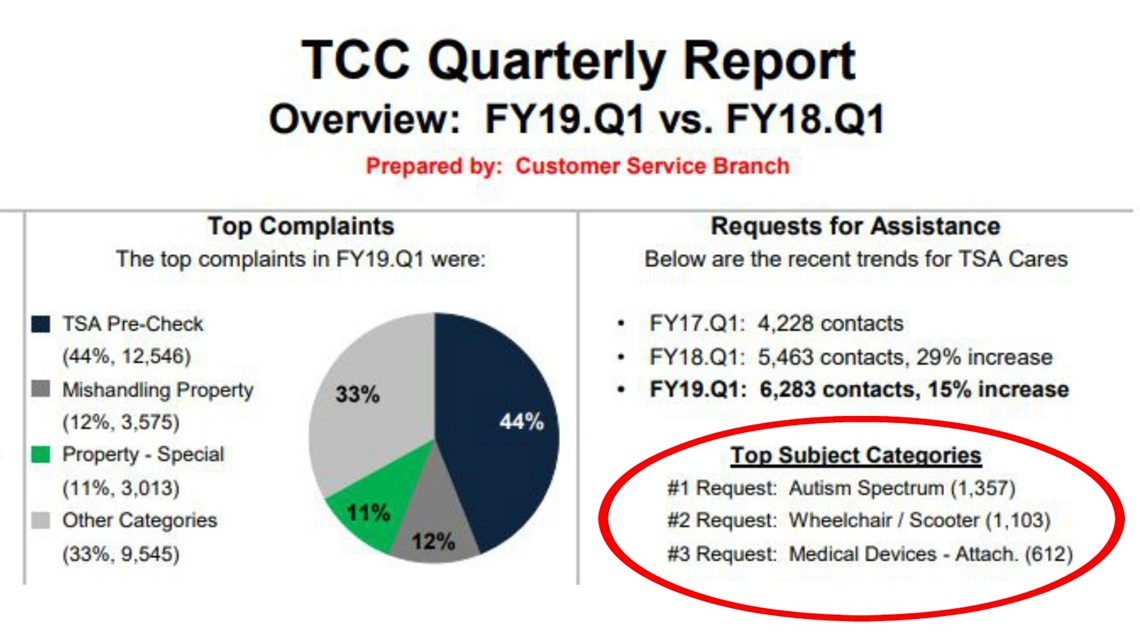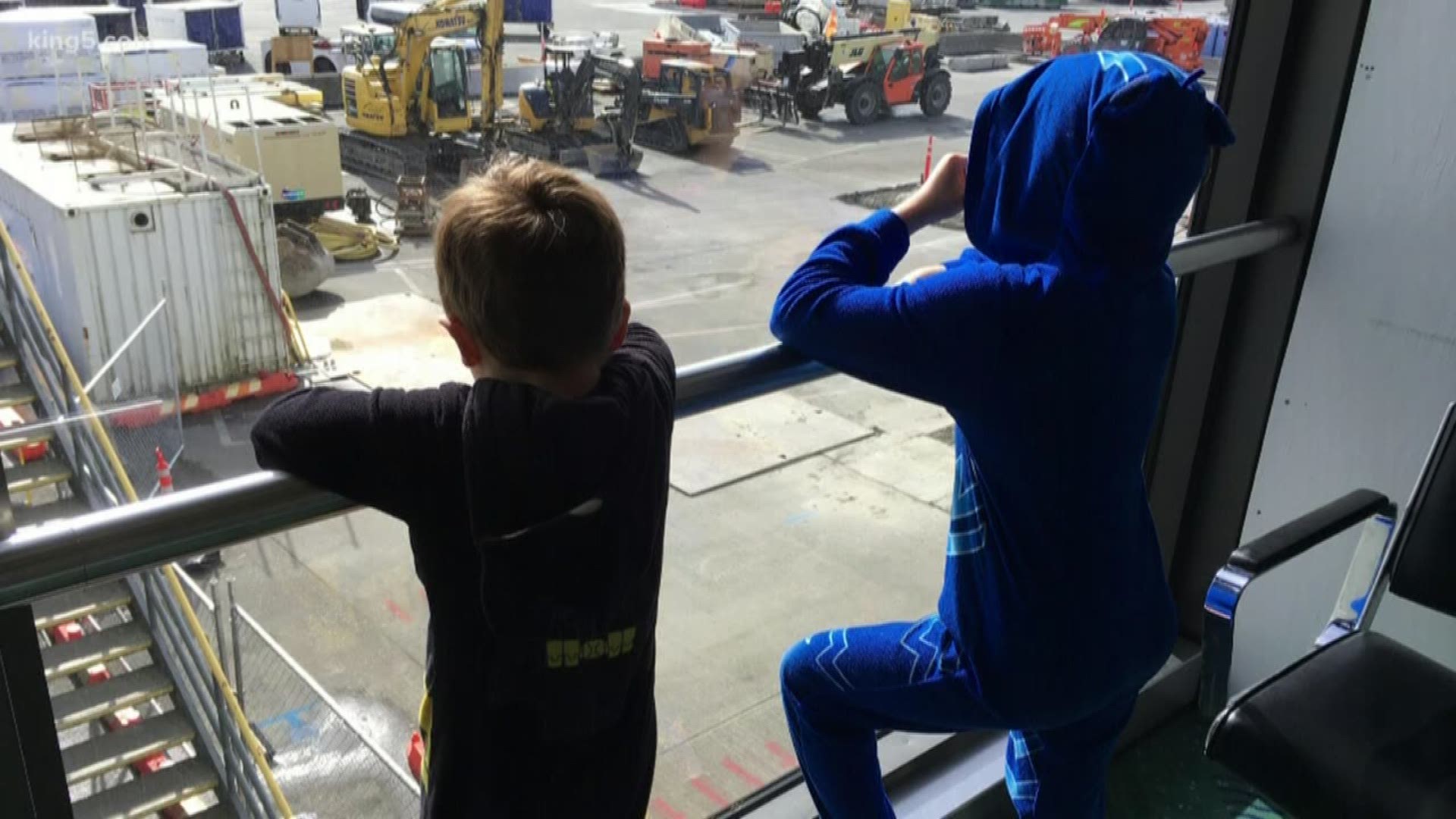SEATAC, Wash. — Families traveling with kids who have autism face an especially anxious journey while going through security screenings and boarding crowded flights during the busy spring and summer vacation season.
Now more families are learning about a TSA program at Sea-Tac International Airport that offers a helping hand during the more stressful parts of the trip.
“We got on the plane, it was just calm and happy, and we've never experienced that before,” said Lacey Pires, who recently took a trip to California with her family, including her 8-year-old daughter Rayne, who has autism.
Previous flights included unpredictable meltdowns, screaming, hitting, and uncertainty.
“You almost don’t know how to prepare or what to expect, and so it’s definitely stressful,” Pires said on Tuesday.
This year's spring break trip was different.
Before their flight, Pires called the helpline TSA Cares and explained her family's challenges. A TSA officer met the Pires near the airport door on the day of the trip and escorted them through security.
“At one point she turned to me and said, ‘What signs do I need to look for if Rayne is getting anxious, as we're walking through the airport? What can I do if she starts to feel that way? What's the most helpful thing for me to do if she does have a meltdown?’ And that was the most helpful thing she could've asked,” Pires said.
An Alaska Airlines employee guided them to their gate, introduced the crew, and made sure the kids were comfortable.
An increasing number of families like the Pires are reaching out to the TSA, asking about autism. TSA said it handled 5,000 requests for assistance last year, and 2019 is on track to surpass that, because more and more families are learning about the help that's available for people with autism and other conditions.
“It's taken off,” said Paul Milner, a Sea-Tac TSA officer who has gone through extra training so he can assist passengers with medical conditions and disabilities.
“I love it, I love helping people,” he said.
Families can ask for a dry-run of the screening process, days before their trip.
“It usually puts their mind at rest, they know what's coming, and it helps them for their future travels. I've had some families who were scared to travel and thanked me when we got done because then they felt comfortable that they can go see grandma,” said Milner. His own grandfather was a wounded World War II veteran who needed help while traveling.
“It seems to me like there's more awareness and more of a recognition that there are families out there that need a little extra support,” Pires said.
For her family, the added attention helped them avoid a lot of turbulence.
“All of that went away with this trip,” she said. “It was amazing.”
The Arc of King County, in collaboration with the Port of Seattle, Alaska Airlines, and TSA, hosts an annual event called “Wings for Autism,” which is a kind of travel rehearsal for families nervous about flying.
The program guides families through entering an airport, picking up boarding passes, going through security and boarding a plane.
The next Wings for Autism event is scheduled for October. Arc of King County said it plans to announce more details on its website in July.
The number to reach TSA Cares is (855) 787-2227. On their website, TSA Cares describes the program as a "helpline that provides travelers with disabilities, medical conditions and other special circumstances additional assistance during the security screening process.
Call 72 hours prior to traveling with questions about screening policies, procedures and what to expect at the security checkpoint."



